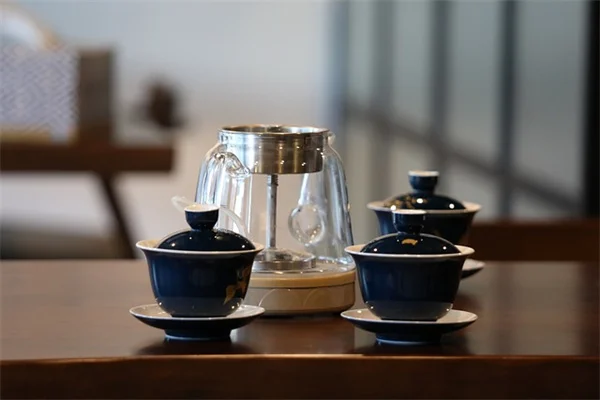Advertisement
Sleeping fewer than seven hours increases your risk of high blood pressure? The answer is absolutely yes - and the numbers might shock you. According to groundbreaking research presented at the American College of Cardiology's 2024 conference, skimping on sleep isn't just making you tired - it's putting your heart health in serious danger. Here's the deal: when you regularly get less than seven hours of shut-eye, your risk of developing hypertension jumps by 7%. And if you're really burning the midnight oil with fewer than five hours? That risk skyrockets to 11%! What's even more surprising? Women experience an even greater increase in risk than men when sleep-deprived. But don't panic just yet - I'll walk you through exactly why this happens and, more importantly, how you can protect yourself starting tonight.
E.g. :Zepbound vs Wegovy: Which Weight Loss Drug Saves You More Money?
- 1、Sleep and Blood Pressure: What You Need to Know
- 2、Your Body on Sleep Deprivation
- 3、Creating Your Sleep Sanctuary
- 4、Daytime Habits for Better Nights
- 5、When to Seek Help
- 6、Making Sleep a Priority
- 7、The Hidden Costs of Sleep Deprivation
- 8、Sleep and Your Immune System
- 9、Sleep and Weight Management
- 10、Sleep and Relationships
- 11、Sleep and Aging
- 12、Sleep and Creativity
- 13、FAQs
Sleep and Blood Pressure: What You Need to Know
The Shocking Connection Between Sleep and Hypertension
Did you know your pillow might be your best weapon against high blood pressure? New research shows that skimping on sleep isn't just making you grumpy - it's putting your heart at serious risk. Let me break it down for you in simple terms.
When we look at the numbers, they tell a clear story:
| Sleep Duration | Increased Hypertension Risk |
|---|---|
| Less than 7 hours | 7% higher risk |
| Less than 5 hours | 11% higher risk |
Why Women Need Extra Zzz's
Here's something that might surprise you: women's bodies react more strongly to sleep deprivation when it comes to blood pressure. The study found females sleeping less than seven hours had a 7% greater risk than men in the same boat. Now, why would that be?
While researchers aren't completely sure, it likely has to do with how female hormones interact with stress responses. Think about it - when you're running on empty, your body goes into panic mode, and for women, that panic seems to hit the blood pressure harder.
Your Body on Sleep Deprivation
 Photos provided by pixabay
Photos provided by pixabay
The Hormone Rollercoaster
Ever notice how everything feels worse when you're tired? That's not just in your head! Sleep deprivation sends your hormones into chaos. Let me paint you a picture:
When you shortchange your sleep, your body thinks it's under attack. Cue the adrenaline and cortisol - your "fight or flight" hormones. These troublemakers make your heart race and your blood vessels tighten up, like squeezing a garden hose. The result? Your blood pressure shoots up.
The Sodium Situation
But wait, there's more! Sleep loss also messes with renin and aldosterone, the hormones that manage your fluid balance. Imagine these hormones as the bouncers at a club, controlling who gets in and out. When they're off duty (thanks to poor sleep), sodium crashes the party, bringing extra fluid with it. More fluid means more pressure in your pipes - literally!
And let's not forget leptin, the hormone that tells you when you're full. Sleep-deprived? Leptin takes a vacation, leaving you craving midnight snacks and potentially packing on pounds - another fast track to higher blood pressure.
Creating Your Sleep Sanctuary
Setting the Stage for Success
Now, I know what you're thinking: "But I just can't sleep!" Trust me, I've been there too. The first step? Make your bedroom a sleep haven. Here's how:
Keep it cool (62-67°F is the sweet spot), dark (blackout curtains are magic), and quiet (white noise machines work wonders). Your bed should feel like a cloud hugging you - if your mattress is older than your phone, it might be time for an upgrade!
 Photos provided by pixabay
Photos provided by pixabay
The Hormone Rollercoaster
Remember how as kids we had bedtime routines? Turns out, our adult selves need them too! Start powering down 30 minutes before bed - and no, scrolling TikTok doesn't count as winding down.
Try reading a book (the paper kind!), doing some light stretching, or practicing deep breathing. And here's a pro tip: set a "bedtime alarm" just like you set a wake-up alarm. Consistency is key, even on weekends!
Daytime Habits for Better Nights
Sunlight and Movement Matter
Here's something cool: what you do during the day directly affects your night. Getting morning sunlight helps reset your internal clock, while regular exercise (just not too close to bedtime) helps burn off energy so you're actually tired when bedtime rolls around.
But beware the afternoon coffee trap! Caffeine can hang around in your system for hours. If you're sensitive, try cutting off caffeine by 2 PM. And that nightcap? Alcohol might knock you out initially, but it actually wrecks your sleep quality later in the night.
The Dinner Timing Trick
Ever notice how it's harder to sleep after a big late dinner? There's science behind that! Try to finish eating at least 3 hours before bed. This gives your body time to digest so you're not lying there feeling like a stuffed turkey.
If you must snack before bed, keep it light - maybe some almonds or a banana. These contain magnesium and potassium, which can actually help you relax!
When to Seek Help
 Photos provided by pixabay
Photos provided by pixabay
The Hormone Rollercoaster
If you're consistently struggling with sleep despite good habits, it might be time to call in the pros. Sleep disorders like apnea or insomnia are more common than you think. Some warning signs:
- Loud snoring or gasping for air at night
- Taking over 30 minutes to fall asleep most nights
- Waking up exhausted even after 7+ hours in bed
The Doctor's Visit Breakdown
Worried about what a sleep doctor visit entails? It's not as scary as you might imagine! Typically, they'll:
1. Ask about your sleep habits and daily routine
2. Possibly recommend a sleep study (yes, you get to sleep at a lab!)
3. Work with you to create a personalized plan
Remember, investing in your sleep is investing in your long-term health. As my grandma used to say, "You can't pour from an empty cup" - and your body can't function without proper rest!
Making Sleep a Priority
Small Changes, Big Results
You don't have to overhaul your life overnight. Start with one or two small changes and build from there. Maybe this week you'll focus on a consistent bedtime, next week you'll tackle the caffeine cutoff time.
The key is consistency - your body loves routine. After a few weeks of better sleep, you might notice your energy levels improving, your mood stabilizing, and yes, your blood pressure numbers looking better too!
The Long Game
Think of good sleep habits like compound interest for your health. The benefits accumulate over time. While one bad night won't ruin you, making quality sleep a regular habit pays dividends down the road.
So tonight, give yourself permission to prioritize sleep. Your future self - and your heart - will thank you. After all, as the saying goes, "Sleep is the best meditation." Now if you'll excuse me, I have a date with my pillow!
The Hidden Costs of Sleep Deprivation
Your Brain on No Sleep
Ever tried assembling furniture while sleep-deprived? That's exactly how your brain functions without proper rest! Missing just one night of sleep can make your brain work like it's legally drunk. Now imagine what chronic sleep loss does.
Here's the scary part - sleep deprivation doesn't just make you forget where you put your keys. It actually shrinks your brain's gray matter over time. Think of your brain as a muscle - sleep is when it repairs and grows. Skip the gym long enough, and well... you get the picture.
The Emotional Rollercoaster
Why do we cry at commercials when we're tired? Sleep loss amplifies emotional reactions by up to 60% according to brain scans. Your amygdala (the emotional center) goes into overdrive while your prefrontal cortex (the rational part) takes a nap.
This explains why everything seems catastrophic at 3 AM. That text from your boss? Probably not actually saying you're fired. The weird noise outside? Almost certainly not a burglar. But try telling that to your sleep-deprived brain!
Sleep and Your Immune System
Your Nightly Bodyguard
Did you know you produce different immune cells while sleeping? One night of poor sleep can reduce your natural killer cells (your body's cancer fighters) by a whopping 70%. That's like sending your security team home during a break-in!
During deep sleep, your body releases cytokines - proteins that help fight infections. Less sleep means fewer soldiers in your personal army. No wonder you always catch colds when pulling all-nighters!
The Vaccine Connection
Here's something wild - sleep affects how well vaccines work. Studies show people who sleep less than 6 hours produce half the antibodies after a flu shot compared to well-rested folks. Your body needs sleep to "save" the vaccine's instructions properly.
Next time you get vaccinated, think of sleep as the save button for your immune system. Without it, all that good protection might just... poof! Disappear.
Sleep and Weight Management
The Midnight Snack Trap
Ever wonder why everything looks edible at 2 AM? Sleep deprivation increases hunger hormones by 30% while decreasing fullness hormones by 20%. Your brain literally tricks you into thinking you're starving!
Here's the kicker - when sleep-deprived, you crave junk food specifically. That's because your brain desperately seeks quick energy fixes. That "just one chip" turns into the whole bag real quick when you're running on empty.
The Metabolism Slowdown
Chronic sleep loss can reduce your resting metabolic rate by up to 8%. That might not sound like much, but it's like your body suddenly forgot how to burn calories efficiently. Over a year, that could mean gaining 10-15 pounds without eating extra!
Think of it this way - your body is a hybrid car. Sleep is when it recharges. Skip charging, and you're running on fumes, guzzling gas (calories) but going nowhere fast.
Sleep and Relationships
The Love Hormone Link
Ever snapped at your partner after a bad night's sleep? There's science behind that. Sleep deprivation reduces oxytocin, the "love hormone" that helps us bond and empathize. No wonder everything seems annoying when you're tired!
Studies show couples argue more after poor sleep. And get this - they're worse at reading each other's facial expressions too. That "look" your partner gives you? You might completely misinterpret it when sleep-deprived.
The Productivity Paradox
Here's an ironic twist - those extra hours you gain by sleeping less actually make you less productive. Sleep-deprived workers take longer to complete tasks and make more mistakes. That "quick" task suddenly takes twice as long!
Ever notice how everything takes forever when you're tired? That's your brain working at half capacity. The math is simple - lose 2 hours of sleep, lose 20% of your brainpower. Not exactly a great trade-off!
Sleep and Aging
Your Skin's Best Friend
They don't call it beauty sleep for nothing! Just one night of poor sleep can increase wrinkles and decrease skin elasticity. Chronic sleep loss? That can age your skin by up to 5 years. Your pillow might be the most expensive anti-aging product you own!
During deep sleep, your body produces collagen - the protein that keeps skin plump. Less sleep means more sagging. Those under-eye bags? They're not just from tiredness - they're literal fluid buildup from poor circulation.
The Longevity Factor
Want to live longer? Prioritize sleep. People who consistently sleep 7-8 hours live longer than those who sleep less or more. It's not just about quantity though - quality matters too.
Poor sleep accelerates cellular aging. Your telomeres (the protective caps on your DNA) shorten faster with chronic sleep loss. Think of them as the plastic tips on shoelaces - once they're gone, everything starts unraveling!
Sleep and Creativity
The Dream Connection
Ever wake up with a brilliant idea? Thank REM sleep! This sleep stage enhances creative problem-solving by up to 40%. Your sleeping brain makes connections your waking mind would never see.
Many famous discoveries happened in dreams - from the periodic table to Frankenstein. Your brain keeps working while you sleep, just differently. That "sleep on it" advice? It's literally science!
The Memory Boost
Sleep is when your brain files away memories. Students who sleep after studying retain 40-50% more information than those who pull all-nighters. That textbook under your pillow? Not as crazy as it sounds!
During sleep, your brain replays the day's events at high speed, strengthening important connections. It's like defragmenting a computer - everything runs smoother afterward. Who knew snoring could be so productive?
E.g. :Sleeping Difficulties, Sleep Duration, and Risk of Hypertension in ...
FAQs
Q: How exactly does lack of sleep cause high blood pressure?
A: When you don't get enough sleep, your body goes into stress mode, triggering what we call the "fight or flight" response. This releases a flood of hormones like adrenaline and cortisol that make your heart race and blood vessels tighten - imagine squeezing a garden hose! But that's not all. Poor sleep also messes with hormones that control your fluid balance, leading to sodium buildup and water retention. Plus, chronic sleep loss causes inflammation that damages blood vessels over time. The bottom line? Your body needs those 7-9 hours to keep all these systems in check. Think of sleep as your body's nightly maintenance crew - without them, things start breaking down!
Q: Why are women more affected by sleep deprivation than men?
A: Great question! While researchers are still studying this, it likely comes down to how female hormones interact with stress responses. Women's bodies seem to have a stronger reaction when sleep-deprived, possibly because estrogen and progesterone play roles in regulating both sleep and blood pressure. The study found women sleeping less than seven hours had a 7% higher risk than men in the same situation. This doesn't mean men are off the hook though - everyone needs quality sleep, but women might need to be extra vigilant about getting those full seven hours.
Q: What's considered "good sleep hygiene" to lower my risk?
A: Sleep hygiene is just a fancy term for habits that help you sleep better. Here's my proven formula: First, set a consistent bedtime (yes, even on weekends) and create a relaxing pre-sleep routine - think reading or light stretching, not screen time. Keep your bedroom cool (62-67°F), dark, and quiet. Watch your daytime habits too - get morning sunlight, exercise regularly (but not too close to bedtime), and cut caffeine by mid-afternoon. Oh, and that nightcap? Alcohol might help you fall asleep but actually wrecks sleep quality later. Small changes add up - start with one or two and build from there!
Q: Can sleeping too much also cause high blood pressure?
A: Interestingly, the study did look at longer sleep durations but didn't find a statistically significant link to high blood pressure. That said, consistently sleeping much more than nine hours might signal other health issues. The sweet spot seems to be 7-9 hours for most adults. If you're regularly sleeping more than nine hours and still feeling tired, it might be worth checking with your doctor to rule out conditions like sleep apnea or depression. Remember, it's about quality as much as quantity - you want restful, restorative sleep.
Q: When should I see a doctor about my sleep and blood pressure?
A: If you're consistently struggling to sleep despite good habits, or if you notice warning signs like loud snoring, gasping for air, or taking over 30 minutes to fall asleep most nights, it's time to see a professional. Same goes if you're getting seven hours but still waking up exhausted. Your doctor might recommend a sleep study to check for disorders like apnea. And if you're already diagnosed with high blood pressure? Don't wait - mention any sleep issues at your next appointment, as improving sleep could be a game-changer for your numbers. Remember, your heart will thank you for taking sleep seriously!







